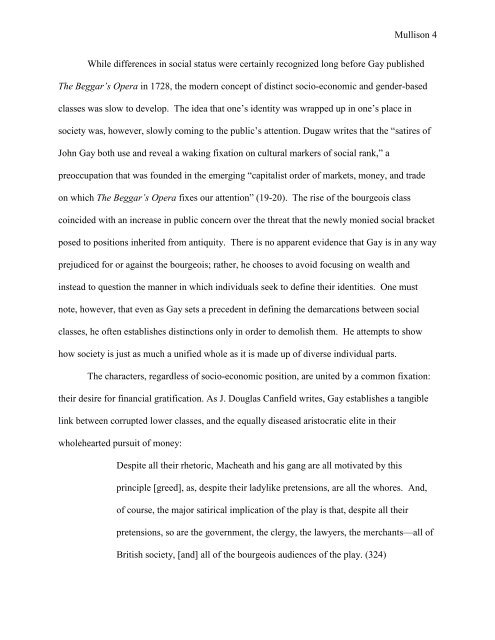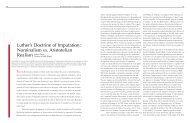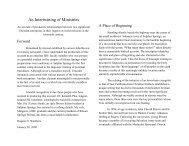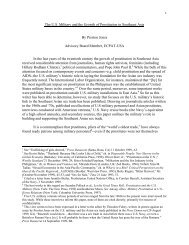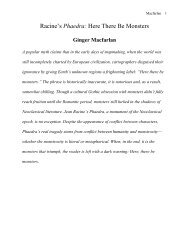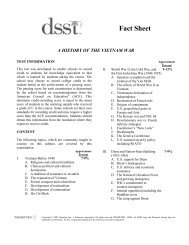Kendra Mullison - John Brown University
Kendra Mullison - John Brown University
Kendra Mullison - John Brown University
Create successful ePaper yourself
Turn your PDF publications into a flip-book with our unique Google optimized e-Paper software.
<strong>Mullison</strong> 4While differences in social status were certainly recognized long before Gay publishedThe Beggar’s Opera in 1728, the modern concept of distinct socio-economic and gender-basedclasses was slow to develop. The idea that one‟s identity was wrapped up in one‟s place insociety was, however, slowly coming to the public‟s attention. Dugaw writes that the “satires of<strong>John</strong> Gay both use and reveal a waking fixation on cultural markers of social rank,” apreoccupation that was founded in the emerging “capitalist order of markets, money, and tradeon which The Beggar’s Opera fixes our attention” (19-20). The rise of the bourgeois classcoincided with an increase in public concern over the threat that the newly monied social bracketposed to positions inherited from antiquity. There is no apparent evidence that Gay is in any wayprejudiced for or against the bourgeois; rather, he chooses to avoid focusing on wealth andinstead to question the manner in which individuals seek to define their identities. One mustnote, however, that even as Gay sets a precedent in defining the demarcations between socialclasses, he often establishes distinctions only in order to demolish them. He attempts to showhow society is just as much a unified whole as it is made up of diverse individual parts.The characters, regardless of socio-economic position, are united by a common fixation:their desire for financial gratification. As J. Douglas Canfield writes, Gay establishes a tangiblelink between corrupted lower classes, and the equally diseased aristocratic elite in theirwholehearted pursuit of money:Despite all their rhetoric, Macheath and his gang are all motivated by thisprinciple [greed], as, despite their ladylike pretensions, are all the whores. And,of course, the major satirical implication of the play is that, despite all theirpretensions, so are the government, the clergy, the lawyers, the merchants—all ofBritish society, [and] all of the bourgeois audiences of the play. (324)


